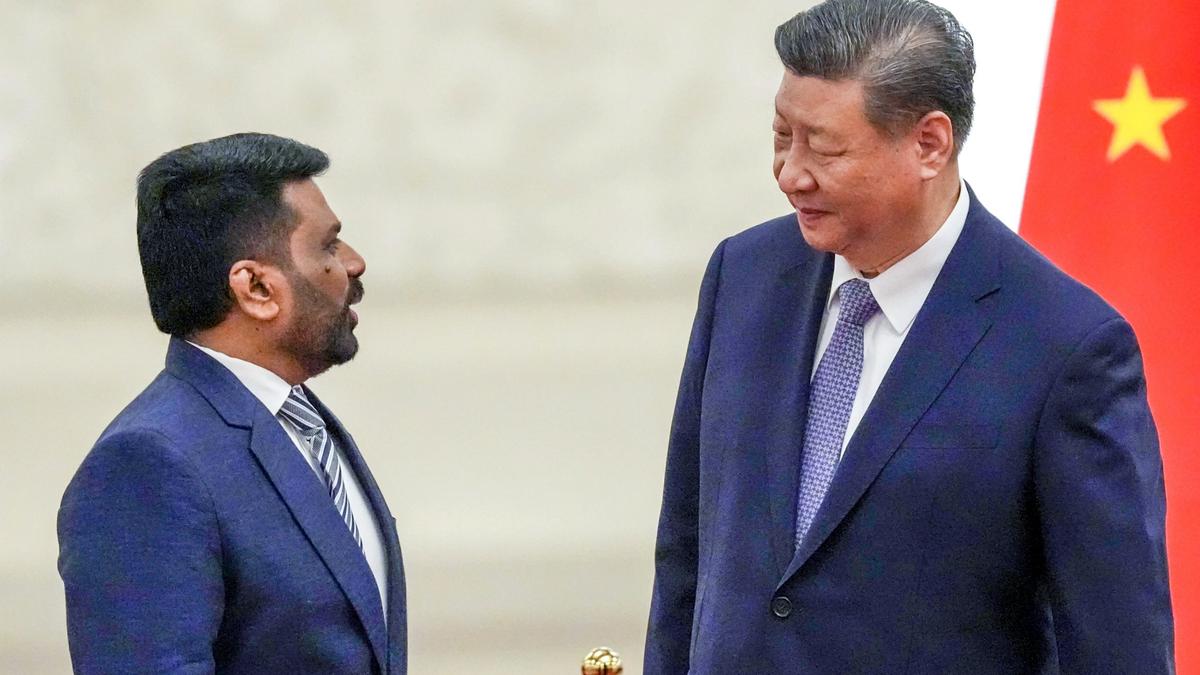Indian Prime Minister Narendra Modi meets with Elon Musk in the U.S. on June 20, 2023.
Indian Press Information Bureau | Anadolu Agency | Getty Images
This report is from this week’s CNBC’s “Inside India” newsletter which brings you timely, insightful news and market commentary on the emerging powerhouse and the big businesses behind its meteoric rise. Like what you see? You can subscribe here.
The big story
President-elect Donald Trump is less than a week away from being sworn in and has promised a flurry of activity from day one.
A key policy — one that worries global investors, yet is also seen as beneficial to India — has been Trump’s promise of stinging tariffs on all imports from China.
Economists expect India will benefit from a U.S.-China trade spat as American firms will attempt to diversify their supply chains.
“There are several ways in which this could all play out, but it is possible that India and Indonesia prove to be the biggest and most immediate winners from Trump’s tariffs – they do not appear to be in Trump’s crosshairs, have fairly low geopolitical risks, and have large and rapidly growing domestic markets,” said Shilan Shah and Marcel Thieliant of Capital Economics.
However, many analysts also forecast that U.S. manufacturing is unlikely to be revived due to tariffs alone. Instead, import taxes are likely to lead to a spike in inflation without economic growth – one that Trump will want to avoid.
“Trump has witnessed how corrosive inflation was to the Biden administration’s electoral support, and he’ll need a disinflationary offset to the inflation that may come from tariffs and immigration restrictions,” said Thierry Wizman, global FX and rates strategist at Macquarie.
Recent whispers from Washington suggest that tariffs are unlikely to be broad. Scott Bessent, hedge fund billionaire and Trump’s pick for Treasury Secretary is also expected to spell out his vision for U.S. trade policy today during his Senate confirmation hearing that reinforces the idea of targeted duties.
Yet, it’s another billionaire – Elon Musk – who is likely to have an outsized influence on America’s trade policy with China, which could be detrimental to India’s economic growth.
Musk, as the head of Tesla, has enormous economic exposure to China through the automaker and will want trade policy between the two superpowers to be settled as soon as possible rather than let tensions rise.
There’s also the possibility that the Chinese government sees Musk as an operator who could help ease tensions between Beijing and Washington. China is now reportedly considering a plan that would have Musk, who also owns social media platform X, acquire TikTok’s U.S. operations to keep the app from being effectively banned. TikTok has denied the reports and says it will not sell its U.S. operation.
While Musk isn’t alone in having business interests in China, he is among the future president’s inner circle of close advisors and could potentially play a crucial role in a U.S.-China trade deal.
“It would undoubtedly be a negative outcome for India should the U.S. broker a deal with China,” said Gaurav Narain, portfolio manager at the London-listed India Capital Growth Fund. “Companies are clearly exploring alternatives to China, which presents a significant opportunity for India.”
“However, should a deal be brokered, the urgency to find an alternative would disappear as China remains more cost-competitive and boasts a full supply chain,” Narain added.
The Tesla chief has also been previously public about his gripe with India’s “highest in the world by far” tariffs on auto imports. Far from being supportive of India, Musk, now having Trump’s ear, could reignite trade tensions between India and the U.S. over India’s import duties.
In an attempt to woo Musk and also to partly deflect attention away from its own tariff policy, the Indian government temporarily lowered import duties for electric vehicles to 15% in 2024, after maintaining them at 100% over multiple decades.
However, economists suggest that Trump has surrounded himself with enough China hawks that even when a trade deal is struck, it will only lead to businesses delaying their transition out of China, rather than stopping it entirely.
“I think it just may be that the case of that investment coming [into India] slows because companies look at it and think, ‘Oh, we’ve got another four years’,” said Michael Langham, India economist at asset manager abrdn. “I don’t see companies thinking so short term as to not plan ahead for what is a longer-term trend, and that being the diversification of supply chains.”
Others also suggest that aside from trade tariffs imposed by Trump during his first administration, the Covid-19 pandemic has also contributed to the corporate strategy of moving away from China.
“I think the reasons why companies are relocating their supply chain are much deeper and, therefore are likely to continue,” Sonal Varma, India chief economist for Nomura told CNBC in an interview late December. “The trade imbalance between the U.S. and China, I think is a small part of, actually what is a bigger issue,” Verma added.
There’s also evidence that Musk hasn’t always gotten his way with Trump either.
The Tesla chief backed Howard Lutnick, the chief executive of investment bank Cantor Fitzgerald, as a pick for Treasury Secretary. Yet Trump instead chose billionaire hedge fund manager Bessent to lead the finance department of the U.S. government.
Need to know
Slowing inflation in India. India’s inflation in December came in at 5.22% year on year, according to the Ministry of Statistics and Programme Implementation. The reading is lower than the 5.30% forecast by a Reuters poll of analysts, and the second straight month of slowing inflation. The softer inflation reading offers room to the RBI to cut rates, amid slowing growth in the country.
China may be delaying exports to India. Shri S. Krishnan, the country’s secretary of the Ministry of Electronics & Information Technology said on Tuesday that the government has received feedback from industry firms, such as Foxconn, that capital equipment were being held up in China’s ports for several months. China hasn’t announced any formal restrictions but the move could be informally directed by Beijing, Krishnan said.
Indian government doesn’t see trouble with currency or oil supplies. The Indian rupee has been depreciating against the U.S. dollar this week, but the government has enough foreign exchange reserves to stem any excessive currency moves, sources within the government said. The government is also confident India will not experience any shortage or price spikes in oil after the U.S. imposed new sanctions on Russian oil, of which India is one of the top buyers.
Using options to reap returns from India. India’s economy is currently experiencing a slowdown. But its growth aspects, going by the United Nations’ forecast, is still strong relative to other global markets. One of the best ways to play India’s market may be with options, according to a chief strategist of an investment firm. [For subscribers only]
What happened in the markets?
Indian stocks appear to be recovering from their horrid start to the year. The Nifty 50 index is down by 0.5% so far this week but has been on the uptrend over the past few days. The index is down by 1.41% this year.
The benchmark 10-year Indian government bond yield shot up briefly by 10 basis points over the past week but has ticked lower to 6.75% on Thursday.
On CNBC TV this week, Neelkanth Mishra, chief economist of Axis Bank, said that the Indian rupee is facing a problem of being “unduly stable.” Over the past two years, the volatility of the rupee was more constrained than that of other global currencies, Mishra said. That’s because the Reserve Bank of India had a policy of stabilizing the currency — and it might maintain that stance “for a lot longer than perhaps necessary,” according to Mishra.
Meanwhile, Sumeet Jain, senior research analyst at CLSA, told CNBC that the valuations for Indian IT sector names are “on a tear in the last two years despite earnings downgrades.” Despite that, Jain is “cautiously optimistic” about the sector because India’s macroeconomic conditions are on an upward trend.
What’s happening next week?
Laxmi Dental, a manufacturer and exporter of dental products, lists Monday. Keep an eye out for China’s GDP and retail sales figures on Friday.
January 17: China gross domestic product for fourth quarter and retail sales for December, euro zone inflation rate final reading for December
January 20: Laxmi Dental IPO, China loan prime rates decision
January 23: Japan balance of trade for December, euro zone consumer confidence flash data for January
I’m Manas Ranjan Sahoo: Founder of “Webtirety Software”. I’m a Full-time Software Professional and an aspiring entrepreneur, dedicated to growing this platform as large as possible. I love to Write Blogs on Software, Mobile applications, Web Technology, eCommerce, SEO, and about My experience with Life.






